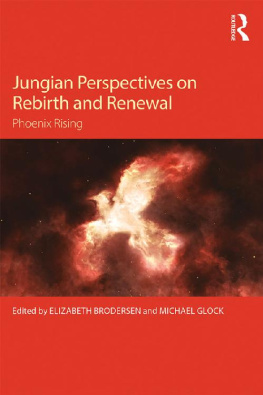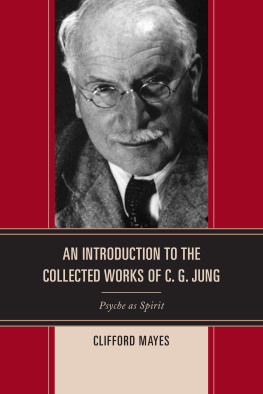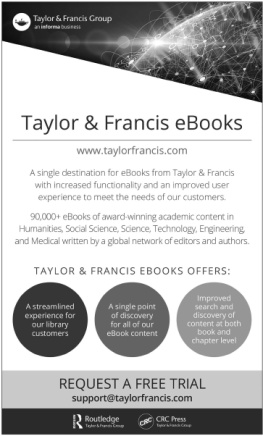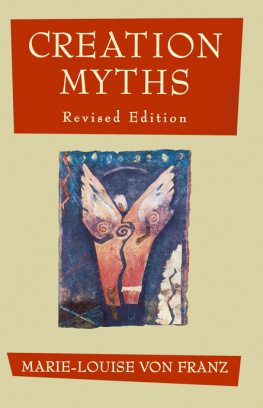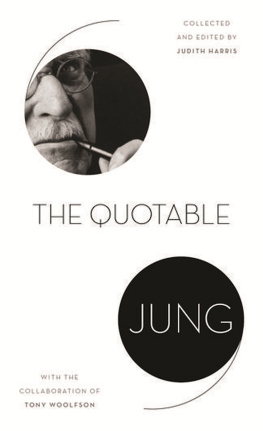Elizabeth Brodersen - Jungian Perspectives on Rebirth and Renewal: Phoenix Rising
Here you can read online Elizabeth Brodersen - Jungian Perspectives on Rebirth and Renewal: Phoenix Rising full text of the book (entire story) in english for free. Download pdf and epub, get meaning, cover and reviews about this ebook. City: London, year: 2016, publisher: Routledge, genre: Romance novel. Description of the work, (preface) as well as reviews are available. Best literature library LitArk.com created for fans of good reading and offers a wide selection of genres:
Romance novel
Science fiction
Adventure
Detective
Science
History
Home and family
Prose
Art
Politics
Computer
Non-fiction
Religion
Business
Children
Humor
Choose a favorite category and find really read worthwhile books. Enjoy immersion in the world of imagination, feel the emotions of the characters or learn something new for yourself, make an fascinating discovery.
- Book:Jungian Perspectives on Rebirth and Renewal: Phoenix Rising
- Author:
- Publisher:Routledge
- Genre:
- Year:2016
- City:London
- Rating:3 / 5
- Favourites:Add to favourites
- Your mark:
Jungian Perspectives on Rebirth and Renewal: Phoenix Rising: summary, description and annotation
We offer to read an annotation, description, summary or preface (depends on what the author of the book "Jungian Perspectives on Rebirth and Renewal: Phoenix Rising" wrote himself). If you haven't found the necessary information about the book — write in the comments, we will try to find it.
Jungian Perspectives on Rebirth and Renewal brings together an international selection of contributors on the themes of rebirth and renewal. With their emphasis on evolutionary ancestral memories, creation myths and dreams, the chapters in this collection explore the indigenous and primordial bases of these concepts.
Presented in eight parts, the book elucidates the importance of indirect, associative, mythological thinking within Jungian psychology and the efficacy of working with images as symbols to access unconscious creative processes. Part I begins with a comparative study of the significance of the phoenix as symbol, including its image as Jungs family crest. Part II focuses on Native American indigenous beliefs about the transformative power of nature. Part III examines synchronistic symbols as liminal place/space, where the relationship between the psyche and place enables a co-evolution of the psyche of the land. Part IV presents Jungs travels in India and the spiritual influence of Indian indigenous beliefs had on his work. Part V expands on the rebirth of the feminine as a dynamic, independent force. Part VI analyses ancestral memories evoked by the phoenix image, exploring archetypal narratives of infancy. Part VII focuses on eco-psychological, synchronistic carriers of death, rebirth and renewal through mythic characterisations. Finally, part VIII explores the mythopoetic, visionary dimensions of rebirth and renewal that give literary expression to indigenous people/primordial psyche re-navigated through popular literature. The chapters both mirror and synchronise a rebirth of Jungian and non-Jungian academic interest in indigenous peoples, creation myths, oral traditions and narrative dialogue as the primordial psyche worldwide, and the book includes one chapter supplemented by an online video.
This collection will be inspiring reading for academics and students of analytical psychology, Jungian and post-Jungian studies and mythology, as well as analytical psychologists, Jungian analysts and Jungian psychotherapists.
To access the online video which accompanies Evangeline Rands chapter, please request a password at
http://www.evangelinerand.com/life_threads_orissa_awakenings.html
Elizabeth Brodersen: author's other books
Who wrote Jungian Perspectives on Rebirth and Renewal: Phoenix Rising? Find out the surname, the name of the author of the book and a list of all author's works by series.

